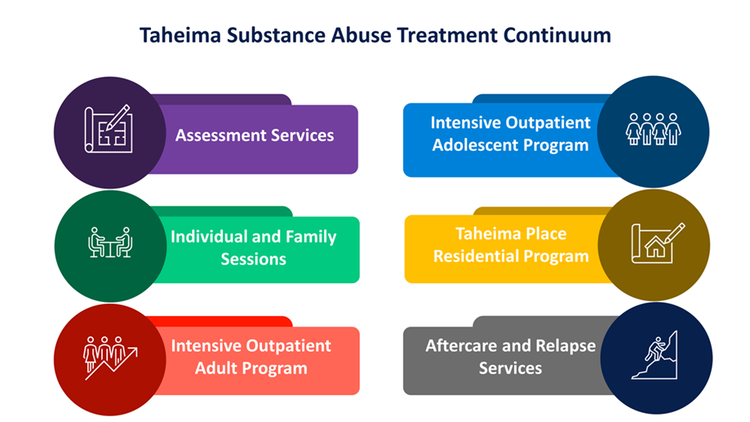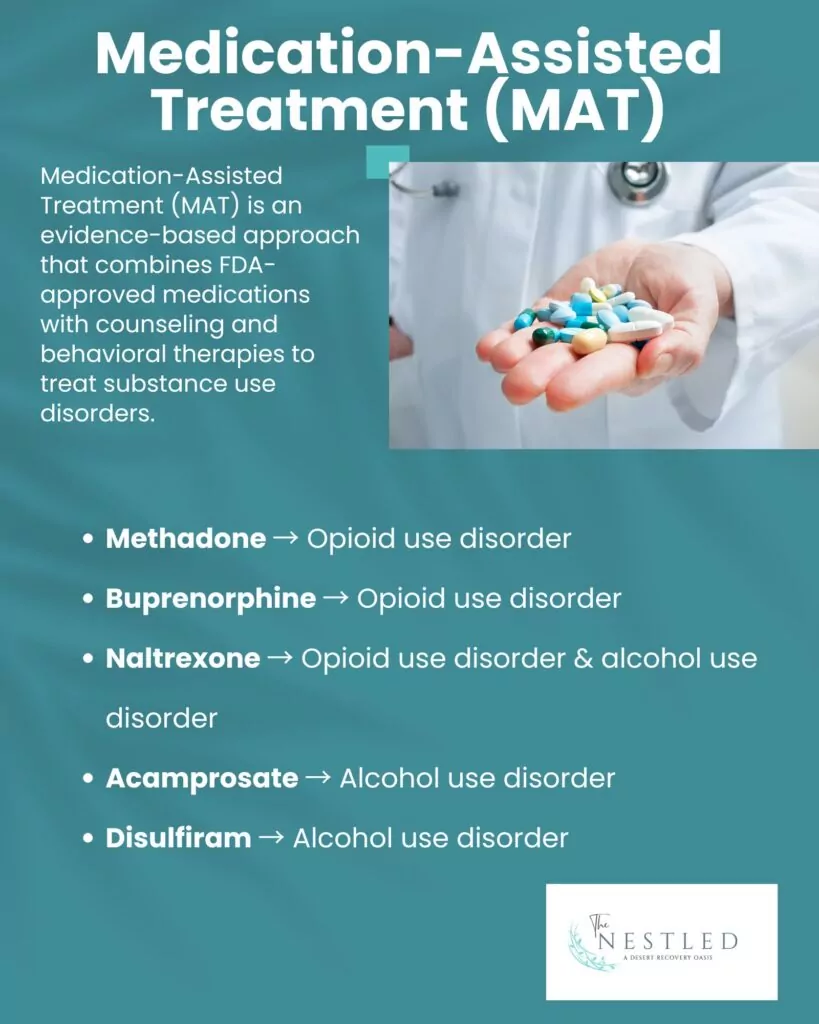Substance Abuse Rehab: A Total Guide to Healing
Substance Abuse is one of the most pressing health and wellness and social difficulties encountered by people and neighborhoods worldwide. It often starts as a coping mechanism for emotional distress, trauma, or stress, however can rapidly advance right into a dependence that affects every location of life-- mental health and wellness, partnerships, employment, and overall wellness. The effects of addiction are serious and extensive, frequently causing physical illnesses, financial problems, and social seclusion. This is why rehabilitation programs exist: to assist people restore their lives and reclaim control over their futures.
Understanding Substance Abuse and the Requirement for Recovery
Rehabilitation centers are developed to deal with the source of addiction as opposed to just the signs. A thorough rehabilitation program entails detoxification, therapy, behavior modification, and education on relapse prevention. Clients discover to identify triggers and create much healthier means to manage anxiety and feelings. Oftentimes, rehab is not practically giving up drugs or alcohol-- it's about finding a brand-new feeling of objective and balance. These facilities provide an encouraging setting where recuperation is not just feasible but lasting.
The path to healing requires courage and commitment, yet with the right therapy, also one of the most serious cases of dependency can be efficiently managed. Rehab programs provide a structured strategy that incorporates clinical expertise, emotional assistance, and peer support. Each program is customized to the person's demands, making certain a tailored experience that promotes lasting sobriety. Whether somebody deals with alcohol, prescription drug, or illegal drugs, entering a rehabilitation program is frequently the first and most essential action toward long-term recuperation.
Inpatient vs. Outpatient Rehabilitation: Which Choice Is Right for You?
When deciding to look for treatment for Substance Abuse, among one of the most crucial choices entails selecting in between inpatient and outpatient rehab programs. Both approaches have their advantages, and the right selection mostly relies on the person's details demands, addiction severity, and personal circumstances. Inpatient rehab, also known as property rehab, needs people to live at the treatment center full-time. This permits for round-the-clock clinical guidance, structured schedules, and a distraction-free setting suitable for extensive recovery. On the other hand, outpatient rehabilitation provides better versatility, permitting patients to attend therapy sessions throughout the day while still living at home and preserving individual or specialist obligations.
Inpatient recovery is best fit for people that call for clinical detoxification, experience from long-term addiction, or have formerly relapsed. The immersive atmosphere makes sure that people are shielded from external temptations and stressors that could activate a regression. Daily treatment sessions, medical monitoring, and group activities assist individuals remain focused on healing. On the other hand, outpatient rehabilitation is usually perfect for those with moderate to modest dependency or solid support group in the house. This kind of program enables people to continue working or going to institution while obtaining regular treatment and assistance.
Eventually, the option in between inpatient and outpatient rehabilitation relies on several aspects such as addiction type, clinical requirements, and way of life. Some individuals even change from inpatient to outpatient treatment as they proceed in their recovery trip - dual diagnosis rehab NJ. Both programs share the same ultimate objective-- aiding clients achieve and maintain sobriety-- yet the degree of structure and support differs. A complete evaluation by dependency professionals can assist determine one of the most efficient treatment plan, ensuring that each specific gets the treatment and interest they need to thrive past addiction

The Cost of Substance Abuse Rehabilitation and Economic Factors To Consider
Among one of the most typical issues for family members and people looking for addiction treatment is the expense of rehab. While prices differ extensively depending upon the facility, program type, and size of keep, it is necessary to check out rehab as an investment in one's wellness and future as opposed to just an expense. The price of unattended dependency-- consisting of shed efficiency, lawful concerns, medical complications, and harmed partnerships-- usually far outweighs the price of expert treatment. Numerous rehabilitation facilities now use flexible settlement options, insurance policy coverage, and economic aid to make therapy much more accessible.
Due to the fact that they include holiday accommodation, meals, and 24-hour medical guidance, inpatient rehabilitation programs tend to be a lot more pricey than outpatient programs. High-end rehab centers with premium centers, private spaces, and holistic treatments can cost substantially more, while community-based or non-profit rehabs usually supply budget friendly and even complimentary therapy alternatives. Outpatient rehab is typically much less costly because it does not call for over night keeps, but the overall expenditure can still differ relying on the duration and intensity of the program. Some insurance intends cover partial or complete prices for rehab, especially if the treatment is deemed clinically needed.
Financial obstacles need to never ever protect against someone from seeking assistance. Numerous treatment centers comprehend the monetary stress that dependency triggers and want to function with individuals to produce workable layaway plan. Some use moving scale charges based on income, while others get government funding to support those in need. When evaluating expenses, it's also important to consider the long-term advantages: enhanced wellness, brought back partnerships, and an opportunity at an extra stable and productive life. Healing is priceless, and the price of rehabilitation is commonly the secret to unlocking a future devoid of the chains of dependency.
Functions and Facilities of a Quality Rehab Facility
The setting in which healing happens plays an essential role in the success of a rehab program. A top quality rehab facility is even more than just a medical facility-- it is a recovery sanctuary developed to support the mind, body, and spirit. The most effective centers integrate evidence-based clinical therapies with comfortable living plans and healing atmospheres. Patients must really feel secure, supported, and inspired as they browse their recuperation trip. Modern rehab centers usually feature private or semi-private spaces, peaceful exterior rooms, nourishing meals, and recreational activities that promote health and relaxation.
Beyond comfort, the essential functions of a trustworthy rehabilitation center include professional staff, personalized treatment plans, and a large range of therapeutic options (addiction treatment). Multidisciplinary groups of medical professionals, specialists, therapists, and assistance personnel interact to design a customized program for each client. Evidence-based therapies like Cognitive Behavioral Treatment (CBT), Dialectical Behavior Modification (DBT), and motivational interviewing are combined with alternative therapies such as yoga, meditation, art treatment, and health and fitness programs. This incorporated approach addresses not just the dependency itself, however also the mental and psychological aspects adding to it
Additionally, the ideal rehabilitation centers stress aftercare and long-term assistance. When a patient leaves the center; keeping soberness calls for ongoing guidance and liability, recovery does not end. Many facilities offer graduates programs, group therapy sessions, and community reintegration solutions to make certain continued development. Facilities that why not find out more give a continuum of treatment-- from detoxification to outpatient assistance-- have a tendency to create one of the most successful results. The overall objective is to create a setting where individuals can heal entirely, rebuild their self-worth, and return to the world with confidence and security.
Benefits important Abuse Rehabilitation Programs
Signing up in a drug abuse rehab program supplies numerous advantages that extend far past getting over addiction itself. One of the most significant benefits is the organized environment that rehab provides. Individuals battling with addiction typically live in turmoil or uncertainty, but rehabilitation presents stability and regimen. Every aspect of every day life-- from therapy sessions to meals and rest-- is intended with function, helping patients establish self-control and consistency. This framework ends up being a structure for building a sober way of life and minimizing the danger of regression after treatment.
An additional significant advantage of rehab is the specialist assistance offered all the time. Addiction is not just a physical reliance; it's additionally a psychological and psychological struggle. Within a rehabilitation facility, patients have access to physician that can securely manage withdrawal symptoms, in addition to specialists that specialize in treating the emotional aspects of recuperation. This level of care makes certain that patients are never alone in their struggles. Group treatment sessions also offer a sense of neighborhood, enabling individuals to get in touch with others that recognize their obstacles and can share their experiences.
Substance Abuse rehabilitation equips patients with lifelong devices for keeping soberness. With education and learning, regression, and therapy avoidance planning, people find out to determine triggers, deal with tension, and make healthier life selections. Rehabilitation aids them reconstruct busted relationships and discover interests and objectives that were shed during dependency. It's a transformative process that restores self-confidence, emotional equilibrium, and hope. The utmost advantage of rehabilitation is that it doesn't simply save lives-- it restores them, aiding individuals discover their worth and produce a brighter, addiction-free future.
The Course Forward: Structure a Life Beyond Addiction
When the rehab program does-- it's a recurring process that calls for support, commitment, and self-awareness, recuperation doesn't finish. After completing therapy, people need to find out to reintegrate right into their everyday lives while keeping the lessons they have actually acquired in rehabilitation. This consists of establishing healthy and balanced coping techniques, staying clear of settings related to Substance use, and surrounding themselves with positive influences. Lots of people proceed with outpatient therapy or sign up with support teams like Narcotics Anonymous (NA) or Alcoholics Anonymous (AA) to stay responsible and linked to the healing area.
A solid aftercare strategy is crucial for long-lasting success. Rehabilitation facilities that supply follow-up counseling, peer assistance, and relapse prevention programs provide individuals the most effective possibility of preserving soberness. Building a new lifestyle might involve pursuing education, offering, or checking out new hobbies that reinforce positive habits (rehab near Chester NJ). Households likewise play an important role in the healing process; when loved ones take part in family treatment and healing education, they end up being an active part of the support group, lowering the danger of relapse

Inpatient rehab, likewise understood as household rehabilitation, requires people to live at the therapy facility permanent. Inpatient rehab programs tend to be a lot more expensive than outpatient programs due to the fact that they include accommodation, meals, and 24-hour clinical supervision. Deluxe rehab facilities with premium facilities, exclusive rooms, and alternative therapies can cost go to my site dramatically a lot more, this post while community-based or charitable rehabs usually offer economical or also free treatment alternatives. Recovery doesn't finish when the rehabilitation program does-- it's an ongoing procedure that requires commitment, assistance, and self-awareness. Rehabilitation facilities that use follow-up therapy, peer support, and relapse prevention programs give people the best chance of preserving soberness.